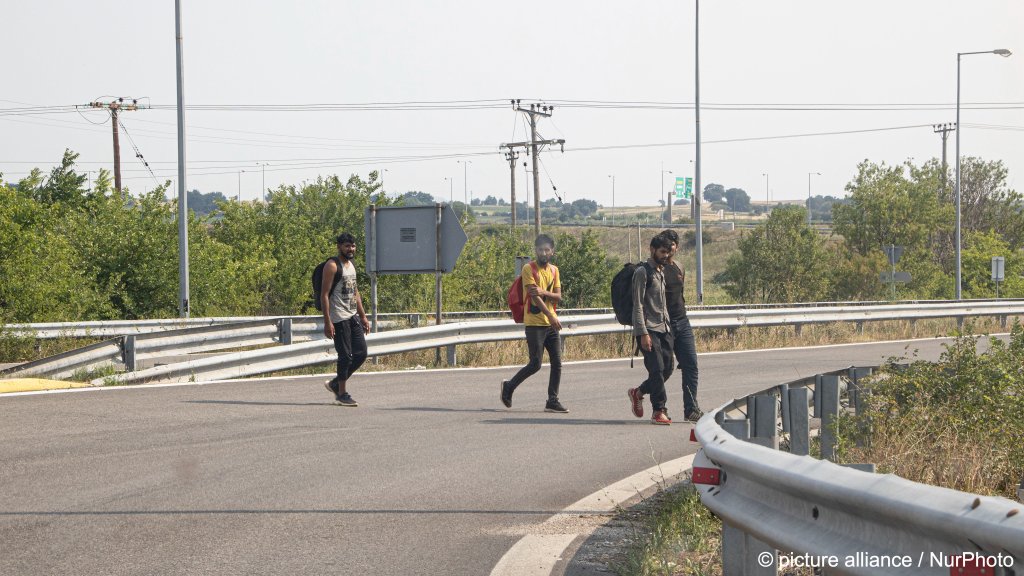Greece has introduced legislation that would strip irregular migrants of the possibility to apply for residency. The new law would also increase penalties for rejected asylum seekers and speed up returns to their home countries.
Greece plans to eliminate a measure allowing irregular migrants to apply for residency after seven years in the country, the government announced on Thursday (May 29).
The country's migration minister, Makis Voridis, claimed that the rule had been abused.
According to an online press release by the migration ministry, police in Greece arrested 74,000 irregular migrants last year. During the same time, only 2,500 people were deported. Voridis also alleged that detainees often claim a false country of origin to avoid deportation, stalling the process.
"From now on, whoever is in Greece illegally will never be legalized, will never get a residence permit," Voridis told broadcaster Skai, news agency AFP reported.
Data by the International Organization for Migration (IOM) show that 62,000 people arrived in Greece irregularly last year. It's unclear why the migration ministry's figure is larger.
The new draft law, approved by the cabinet on Wednesday, still needs to be approved by Parliament. The approval, slated for June, is all but certain given the government has a majority.
Voridis' statements echo comments made by Greek Prime Minister Kyriakos Mitsotakis on Wednesday. Among other things, Mitsotakis claimed that the bill would aim to speed up returns through a "more effective and fair mechanism".
Read AlsoGreece says it won't accept migrant returns from Germany
Prison sentence of up to 5 years
Under the new law, if enacted, people could also be punished with up to five years in prison for illegal entry and residence, migration minister Voridis said according to AFP.
Voridis has also proposed to extend administrative detention prior to planned deportations to a maximum two years, up from a maximum 18 months currently.
Irregular migrants can choose voluntary repatriation to avoid any sanctions, he said.
Voridis also told broadcaster Skai that new regulations intended to encourage legal migration will be presented by July, AFP reported. "It is absolutely crucial that we organize legal immigration properly, so that the needs of the economy are met," he said. According to the Bank of Greece, Greece is short of around 200,000 laborers.

Fewer arrivals
Irregular migrant flows to Greece dropped some 20 percent in the first five months of this year (14,000 through May 25) compared to the previous year (17,000) as fewer people entered along the EU member state's eastern border with Turkey, according to UN refugee agency UNHCR.
At the same time, sea arrivals from Libya to the southern Greek islands of Crete and much smaller Gavdos, home to only about 60 permanent residents, have surged in recent months. This trend has raised concern over a potential new smuggling route in the Mediterranean.
with AFP, Reuters
